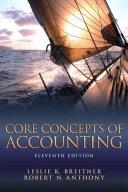Question
from the facts answer in two pages 1- Statement of Law 2- Discussion please rewrite the Statement of law in one page in paragraph and
from the facts answer in two pages
1- Statement of Law
2- Discussion
please rewrite the Statement of law in one page in paragraph and include another page as a discussion
answer must be in essay format.
Facts:
Charlie and his wife lived in the house for the last 15 years. In 2010 due to some unknown reasons, he demolished the house and constructed a new house on the same lot. The house was completed in 2011 and decided not to stay in the same house. He sold the house in 2012 at gain of $547,000. He excluded gain of $500,000 (exclusion allowed for MFJ) and paid capital gain on $47,000. He was audited for 2012 and IRS had a different idea.
Statement of Law:
IRS Pub 523
https://www.irs.gov/pub/irs-pdf/p523.pdf
Does Your Home Sale Qualify for Maximum Exclusion
To qualify for these breaks, your home must meet the Eligibility Test
How your sale qualifies. Your sale qualifies for exclusion of $250,000 gain ($500,000 if married filing jointly) if all of the following requirements are met.
You owned the home and used it as your main home during at least 2 of the last 5 years before the date of sale. In terms of the home, no. It was constructed in 2011 and sold in 2012, just 1 year later, and never actually lived in by Charlie and his wife. If you sell the land on which your main home is located, but not the house itself, you cannot exclude any gain you have from the sale of the land. However, if you sell vacant land used as part of your main home and that is adjacent to it, you may be able to exclude the gain from the sale under certain circumstances.
You didnt acquire the home through a like-kind exchange (also known as a 1031 exchange), during the past 5 years. No.
You didnt claim any exclusion for the sale of a home that occurred during a 2-year period ending on the date of the sale of the home, the gain from which you now want to exclude. I assume no.
You arent subject to expatriate tax. Not avoid tax laws regarding of their asset.
The sale does not involve the transfer of vacant land or a remainder interest.
If all of these are true, skip to Figuring Gain or Loss, later. If one or more of these arent true, you might still be eligible. Keep reading to find out.
Eligibility Step 1 - Automatic Disqualification - Not a like-kind exchange or expatriate tax does not apply.
Eligibility Step 2 - Ownership Test - Must meet the ownership and use test. Charlie and his wife meet the ownership test, but fail to meet the use test because they did not live in the new house for at least 24 months. I assume this isnt possible as the house didnt even exist.
Eligibility Step 3 - Residence - did not live in home for at least 24 of the months he owned the home during the 5 years leading up to the date of sale.
Eligibility Step 4 - Look Back - If you didnt exclude gain for selling a home on your tax returns for the previous two years (and you dont intend to do so on any returns or amended returns for the past two years that arent yet filed), you meet the look-back requirement. Does not apply
Eligibility Step 5 - Exceptions
There are several exceptions listed - Work-related move, health related move, unforeseeable events (such as death or divorce), etc. None appear to apply. Charlie and his wife demolished the house due to some unknown reasons. This further demonstrates that he does not meet any of the exceptions as the reason is simply not disclosed.
Showing facts and circumstances. If your circumstances dont match any of the standard requirements described above you still eligible for partial exclusion but the primary reason for sale, based on facts and circumstances, is work-related, health-related, or unforeseeable. Important factors are:
The situation causing the sale arose during the time you owned and used your property as your residence.
You sold your home not long after the situation arose.
You couldnt have reasonably anticipated the situation when you bought the home.
You began to experience significant financial difficulty maintaining the home.
- The home became significantly less suitable as a main home for you and your family for a specific reason.
 GAIN ON SALE OF PRINCIPAL RESIDENCE Charlie and his wife lived in the house for the last 15 years. In 2010 due to some unknown reasons, he demolished the house and constructed house on the same lot. The house was completed in 2011 and decided not to stay in the same house. He sold the house in 2012 at gain of $547,000. He excluded gain of $500, 000 (exclusion allowed for MFJ) and paid capital gain on $47,000. He was audited for 2012 and IRS had a different idea
GAIN ON SALE OF PRINCIPAL RESIDENCE Charlie and his wife lived in the house for the last 15 years. In 2010 due to some unknown reasons, he demolished the house and constructed house on the same lot. The house was completed in 2011 and decided not to stay in the same house. He sold the house in 2012 at gain of $547,000. He excluded gain of $500, 000 (exclusion allowed for MFJ) and paid capital gain on $47,000. He was audited for 2012 and IRS had a different idea Step by Step Solution
There are 3 Steps involved in it
Step: 1

Get Instant Access to Expert-Tailored Solutions
See step-by-step solutions with expert insights and AI powered tools for academic success
Step: 2

Step: 3

Ace Your Homework with AI
Get the answers you need in no time with our AI-driven, step-by-step assistance
Get Started


